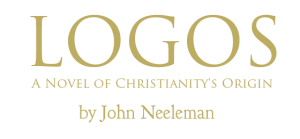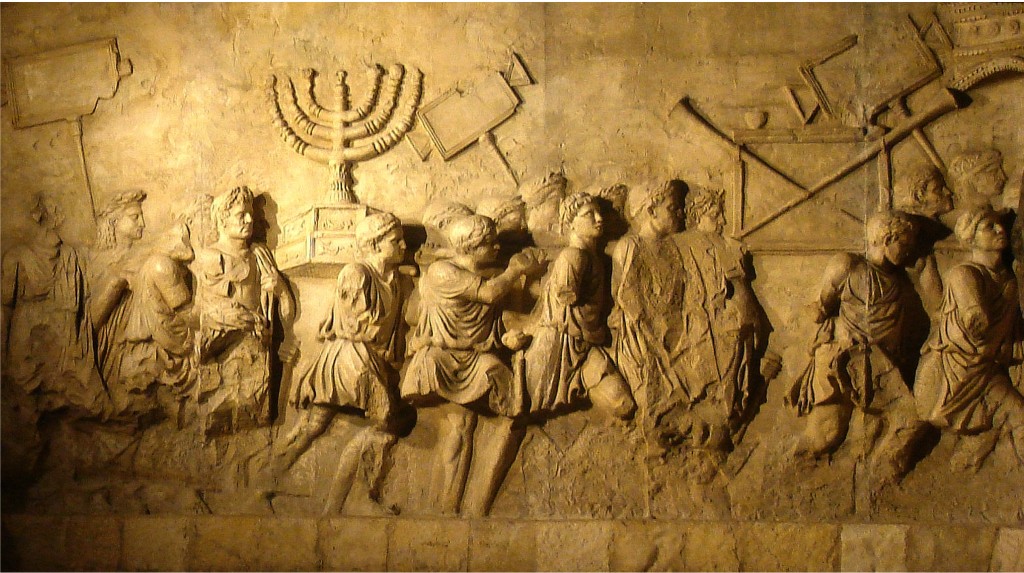Logos dramatizes the composition of the original Gospel – by the novel’s protagonist, Jacob. The novel’s premise is predicated on the consensus among biblical scholars that the canonical Gospels were written decades after Jesus’ death, and that all of their authors are anonymous. They likely were not written by persons bearing the names that are attached to them: Matthew, Mark, Luke, or John. So, which Gospel does Jacob write? He does not affix any name to it; indeed, he deliberately omits his own.
Modern scholarly investigation of the Gospels’ origins – collectively and individually – focuses primarily on what is now commonly known as the “synoptic problem”. The synoptic problem arises from the literary interrelationship among the Gospels of Matthew, Mark, and Luke – in the New Testament these three Gospels appear in the foregoing order, and precede John. The synoptic Gospels contain parallel narratives that share similar stories about Jesus’ biography, Jesus’ sayings, and the parables. Moreover, these elements of the common narrative are arranged essentially in the same order, and scholars have shown that the original Greek texts even sometimes used the same words and the same syntax. In contrast, the Gospel of John, while sharing many common characteristics with the synoptic Gospels, differs considerably in organization and language, and its theology is more developed.
Matthew contains most of Mark’s substantive content, and Luke substantially less of it. I have seen estimations, for example, that ninety percent of Mark is in Matthew, while Luke includes fifty-five percent of Mark. But biblical scholars can’t even agree on this much. The estimations vary significantly about what the three texts actually have in common and where they diverge.
While the three synoptic Gospels overlap substantially, Matthew and Luke each contain an enormous amount of content that is not in Mark. This has led biblical scholars to conclude that Mark is the original canonical Gospel. The gist of the argument is that it’s a lot easier to explain why Matthew’s and Luke’s authors would have added material, than why Mark’s author would have omitted such a large quantity of significant content.
However, despite the parallels between Matthew and Luke, mainstream Gospel scholars have concluded that the differences between them are of such significance and magnitude that the anonymous authors of each of these Gospels must have worked independently. Indeed, Matthew contains a great deal of content that is in neither Mark nor Luke. For example, Matthew contains more of Jesus’ sermons. Matthew and Luke differ in their depiction of the early part of Jesus’ life. There are many other important differences between Matthew and Luke of varying degrees.
Nevertheless, the numerous striking similarities between Matthew and Luke must be explained: Accordingly, mainstream Gospel scholarship has concluded that there must have been an additional Gospel, now lost, that was a source for Matthew and Luke, which Gospels were composed independent of one another. The mainstream view is that Matthew and Luke relied on Mark, and this additional, hypothetical mystery source. The mystery source is most often identified as Q, a proto-Gospel. Other hypothetical sources or proto-Gospels have been identified as well, e.g., L, M and K.
As I say, the existence of Q represents the mainstream view, but there is nevertheless substantial disagreement – and beyond the mere existence of Q, the views diverge substantially and become increasingly speculative. The following questions among others have not been, and likely cannot be, answered other than by speculation or hypothesis: What is the explanation for the very close parallels between the synoptic Gospels, considering that scholars have decided – based on exegeses of their texts – that these Gospels were likely written in different places and at different times? Did their authors draw from a common written source or sources or oral sources or both? If so, what did these written or oral proto-Gospels contain? Did there exist a record of Jesus’ biography that was composed before the canonical Gospels that was a source for the authors of the synoptic Gospels? If so, why was there perceived a need for additional Gospels if there already existed an earlier account? How did the authors use any preexisting sources?
These and other questions have led biblical scholars to identify about two dozen distinct hypotheses (of which I’m aware) for the provenance and development of the synoptic Gospels. Indeed, mainstream Christianity has regarded Matthew as the original Gospel, which is the reason for its primary placement in the New Testament. Regardless, it does appear to be a mainstream view among scholars that there was at least one proto-Gospel, now lost, that was a source for at least Matthew and Luke, and therefore preceded at least these two Gospels, and perhaps Mark. About whether this mystery Gospel preceded Mark, we can only speculate.
My aim is most emphatically not to take a position among these two dozen varying hypotheses. My personal view is that the authors of the Gospels likely intended to keep their origins mysterious. And any amount of after the fact reasoning to support the various hypotheses is essentially fiction. People and their circumstances are infinitely complicated; truth can be stranger than fiction.
But I am a novelist, not a biblical scholar. A part of the historical novelist’s craft is to extrapolate from where the facts run out – plausibly and with verisimilitude. In a New Yorker interview (October 14, 2009), Hilary Mantel, the author of Wolf Hall, said, “I try to stick with the facts until the facts run out.” That has been a part of my mission with Logos. With respect to the provenance of the collective stories, parables and sayings of the four Gospels, Logos simply provides imagination and art where the known facts run out. The aim, primarily, is to tell a good story, and secondarily, hopefully generate some novelistic truth.
As for historical truth, I can say about Logos what Robert Graves said about King Jesus, his own novelistic retelling of the Christian story: “I undertake to my readers that every important element in my story is based on some tradition, however tenuous, and that I have taken more than ordinary pains to verify my historical background.”
Look for Logos in paperback and kindle wherever books are sold. Amazon | Indiebound | Reader’s Guide

